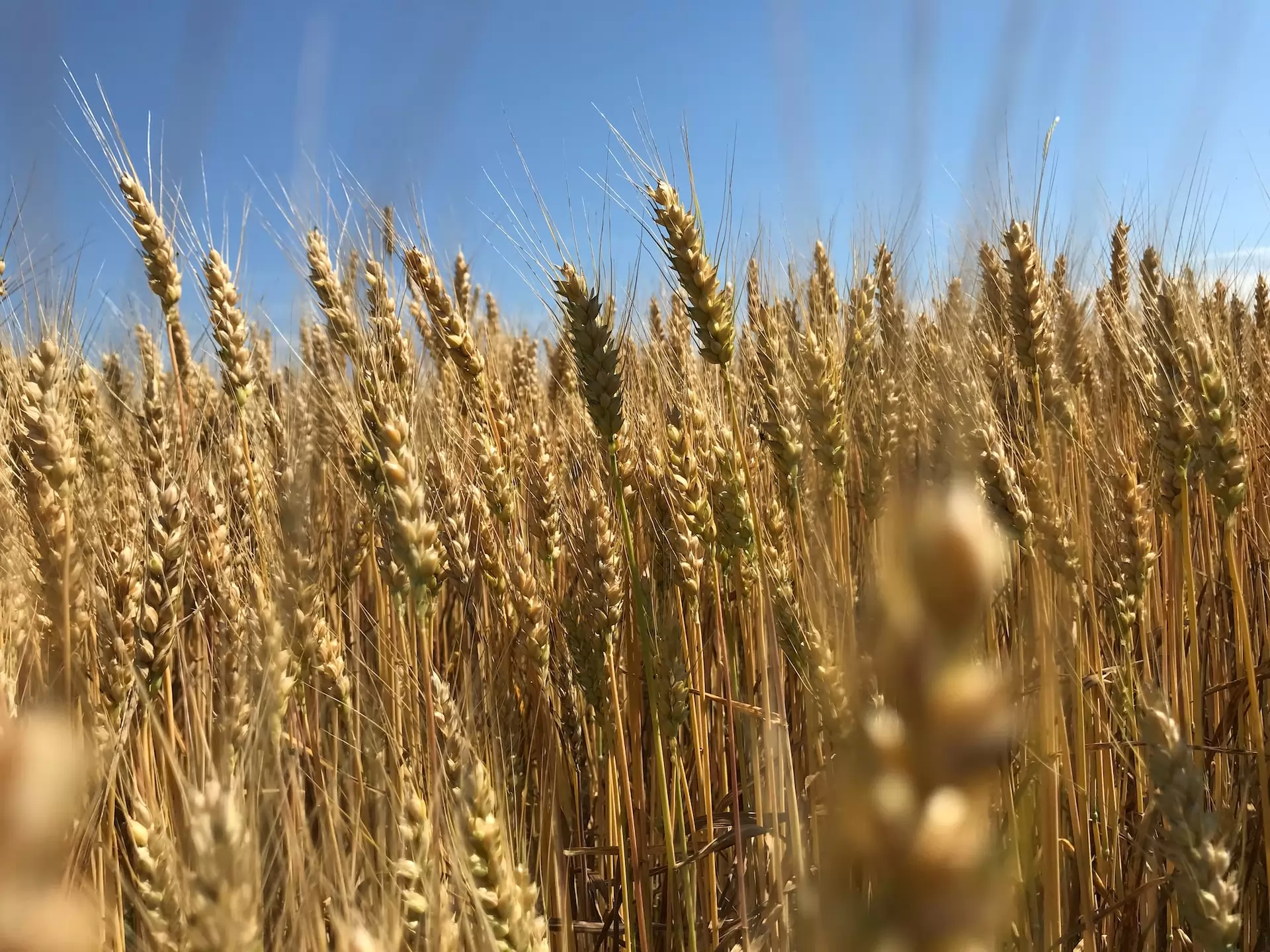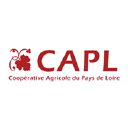Summary
The global seed market, with France as a leading player, has been experiencing dynamic growth. In 2022, France managed to cultivate nearly 400,000 hectares of agricultural products, with a significant portion being exported, marking the nation as the world’s top seed exporter with exports worth over 1.5 billion euros. The French seed market itself, ranking first in Europe, grew to reach a valuation of 3.9 billion euros between 2018 and 2023, despite a slight decline in 2020-2021, highlighting a robust 20.5% growth.
The industry saw corn and sorghum as major sales contributors, while the export-import coverage rate hovered around 230%. With demographic growth as a major market driver, the seed sector is adjusting to meet the increasing demands for food production, propelled by an estimated global population growth to 10 billion by 2050. The development of new plant varieties, with France producing 450 new varieties annually, and heavy investment in R&D, remains a focal point. Despite the challenges posed by the Russian-Ukrainian conflict, the sector remains resilient, with France holding a central role in meeting the world’s agricultural demands.
The Flourishing French Seed Market: Catering to Growing Demands and Nurturing Innovation
In the vibrant agricultural landscape of France, the seed market stands out as a crucial component driving the agricultural engine. With a population on the rise, projected to reach between 65 and 70 million by 2024, and global figures ballooning to nearly 10 billion by the mid-21st century, the demand for food and, consequently, agricultural seeds has surged. The French seed market isn't just about quantity. Innovation plays a pivotal role, evident in the substantial investments funneling into R&D - notably between 10 and 15% of revenues from leading companies such as Vilmorin & Cie which stands at the forefront of the global vegetable seed industry. This rich tapestry of agricultural science and commerce has positioned France not just as Europe's top seed consumer but also as the world's premier exporter, dealing with a robust network of European partners such as Germany accounting for around 15 to 17% and Spain at about 9 to 11% of total exports.
Despite uncontrollable variables like the COVID-19 situation or the recent geopolitical tensions in Eastern Europe, the French seed market has remained resilient. It has sustained growth between 2018 and 2023, with revenue figures blossoming to between 3.5 to 4 billion euros. Corn, sorghum, straw cereals, and protein crops form the bulk of the sector's treasury, but the diverse portfolio includes everything from traditional starch crops to the more specialized vegetable and flower seeds catering to the community of green-thumbed enthusiasts. Complementing the robust cultivation and innovation is France's favorable trade balance. This success stories of exports underscore the country's prominence on the global stage. While challenges exist, ranging from climate change to fluctuating commodity prices, France's seed market continues to evolve, shaped by the twin forces of rising demand and relentless innovation. As the world's appetites grow, so does the commitment of the French seed industry to satisfy them with quality, diversity, and sustainability.
Key Market Players Shaping the French Seeds Industry
The French seeds market, renowned for its dynamism and innovation, showcases a multitude of key players that are significantly contributing to the sector's success. These staple entities range from breeding companies diligently working on varietal enhancements to prominent cooperatives and production firms ensuring a seamless transition from research to market availability. Here's a closer look at the pivotal players steering the growth and direction of the French seeds industry.
Breeding Companies: Innovators of Seed Varieties
- Breeding companies are at the forefront of innovation within the seeds market, dedicating considerable resources to develop new, high-performing varieties. These entities, which number at 69 in France, contribute an impressive 450 new varieties to the official French catalog each year. Operating predominantly as SMEs or cooperatives, these companies ensure that 13% of their seed sales are reinvested into research and development, showcasing a higher commitment to R&D than many other sectors including pharmaceuticals and IT.
Some key breeding companies in France include:
- Agri Obtentions : Known for their work in both straw cereals and oilseeds, striving to develop varieties that bring robustness and yield efficiency to French agriculture.
- BASF France : A global chemical giant with a significant presence in the plant science sector, they offer innovative solutions for sustainable agriculture.
- Limagrain Europe : This cooperative leads the market with a portfolio that includes cereals, oilseeds, and vegetable seeds, placing a strong emphasis on research to cope with agricultural challenges.
- Bayer Seeds SAS : As part of Bayer's Crop Science division, it focuses on developing seeds and traits that improve productivity and reduce the environmental impact of farming.
Production Companies: From Seed to Farm
- Apart from breeders, seed production companies play a crucial role in the seeds market. Ensuring high standards from harvest to distribution, these firms, which also operate as cooperatives and traders, are critical in aligning with food safety standards and employing cutting-edge technology in their operations.
Noteworthy production companies comprise:
- Euralis Semences : A leader in corn and sunflower seeds, adapting their offerings to meet the climatic and soil requirements of farms across France.
- KWS France : This company excels in producing seeds for straw cereals, oilseeds, and industrial beets, with a vigilant eye on quality and productivity.
- Germicopa : Specializing in seed potatoes, they leverage advanced breeding methods to supply high-caliber potato
to understand this market
Detailed content
 Inforamtion
Inforamtion
- Number of pages : 30 pages
- Format : Digital and PDF versions
- Last update : 25/04/2024
 Summary and extracts
Summary and extracts
1 Market overview
1.1 Definition and presentation
The seeds market in France is a study of the economic activity related to the primary inputs of the agricultural sector, whose function is to sow crops.
Agricultural seeds and grains are consumable agri-supply products. There are several product categories in this market:
- Agricultural seeds: there are many types of agricultural seeds, the most widespread being barley, soybean, millet, rice, legumes, corn, straw cereals (wheat and barley), sunflower, rapeseed, flax and cotton.
- Vegetable seeds: segmented by vegetable type, these include cabbage, melon, corn, eggplant, bell pepper, lettuce, carrot, watermelon, onion and many others.
- Seeds: there are different criteria for classifying seeds. Firstly, their water content (dry seeds or watery seeds), then the proportion and distribution of their tissues (seeds with perisperm, seeds with albumen or seeds without albumen or exalbuminous seeds), and finally their envelope(naked seeds, simple naked fruits, simple clothed fruits, compound fruits).
In 2022, France will benefit from almost 400,000 hectares of cultivation of these products. France is not only Europe's leading consumer market for seeds, but also the world's leading exporter: in recent years, France has exported an average of over 1.5 billion euros worth of seeds worldwide. By 2022 - 2023, its leading export customers will be European: Germany will account for 16% of total exports, Spain 10% and Poland 6.7%, closely followed by Italy (6.4%) and the Netherlands (4%).
The primary factor driving growth in the sector is the increase in the world's population, which is expected to reach almost 10 billion people by 2050. This means a constantly growing demand for agriculture and food production, and consequently for agricultural raw materials such as seeds and grains. The main market driver is therefore demographic growth, but there is also the need to adapt agricultural varieties to climate change. This is a strong argument in favor of seed companies, who are investing in R&D to adapt their offer.
In fact, this is what the world leader Vilmorin & Cie is doing , with the French company leading the market and investing 14.6% of its revenues in R&D in 2023. The seed subsidiary of the Limagrain cooperative has established itself as the world leader in vegetable seeds, even overtaking the giants Bayer-Monsanto and Syngenta. It has recently positioned itself in the fennel, lamb's lettuce, spinach, chard and radish markets, strategically targeting niches for growth.
In 2020, the Covid-19 epidemic had no significant impact on the sector, while the Russian-Ukrainian crisis underway since February 2022 has brought its share of bad news. In 2023, the two countries concerned accounted for around 7% of French seed company exports, compared with almost 12% in 2021.
1.2 The global market
The global seed market was valued at US$**.* billion in ****, and is expected to continue growing at a CAGR of *.*% to reach US$**.* billion in ****.
World seed market World, **** - ****, in billions of USD Source: ****
The sector's growth is driven by the ever-increasing population and, consequently, by the growing need for ...
1.3 The domestic market
The French seed industry is a very important sector, both nationally and internationally. Indeed, the French market ranks first in Europe, and third worldwide, behind the United States and China. The seeds market has been growing for several years, reaching *.* billion euros in **** - ****. It grew by **.*% between **** - **** and **** - ...
1.4 Balance of trade
France is by far the leading seed producer in Europe. It produces far more than it consumes, and a large proportion of its production is exported, mainly to its European neighbors. In fact, the latter received **% of French exports in ****. The coverage rate (***) is therefore very high. It is generally around ...
2 Demand analysis
2.1 Growing food demand
The world's population has been exploding in recent years. On November *, ****, the world's population reached * billion. On average, the population has grown by *.*% every year since ****.
World population trends World, **** - ****, in billions of people Source: ****
This upward trend is set to continue in the years ahead. Indeed, projections estimate that ...
2.2 Confidence in farmers drives local demand
Farming is a particularly popular profession in the French imagination. Indeed, although farmers don't always feel the support of the general public, **% of French people have a good opinion of farmers. In fact, farmers rank in the top * of French people's favorite professions, behind firefighters (***).
French people's favorite professions France, ****, in Source: ...
2.3 Stakeholders' needs drive farmers' choices
Farmers have to adapt to the needs of the population in order to offer appropriate products. Crops and seeds must meet the needs of French consumers for food, as well as those of producers, distributors and manufacturers.
Semences de France has drawn up a ranking called"Les Préférées ...
3 Market structure
3.1 Seeds and seeds value chain
The seeds and grains market involves many players, who must coordinate their efforts to meet public demand.
Source: ****
The concentration of breeding and production activities has increased steadily in recent years. Indeed, groups and companies with sales in excess of €*** million now account for more than half of the industry's sales ...
3.2 Very specific professions
Breeders
Breeders, and more generally plant breeding companies, produce first-generation seeds. This research work is carried out both in the fields and greenhouses, and in the laboratory. The business model of these companies is based on research and development. On average, they invest **% of their sales in R&D, compared with ...
3.3 The main players
Industry bodies
SEMAE (***) is theinterprofessional organization for all players in the seed industry. SEMAE's activities revolve around a clearly established raison d'être in ****:"to ensure the availability and supply of quality seeds and plans by adapting to the diverse expectations of farmers, gardeners and consumers in France and in different ...
4 Offer analysis
4.1 Different types of seeds
There are many varieties of seeds and grains, divided into several categories and sub-categories. These seeds are grown in different ways and do not require the same soil and weather conditions to thrive. For this reason, many farmers grow only one species or variety, adapted to the local climate and conditions. ...
4.2 Seed prices
Seed prices fluctuate widely. In fact, seed production is highly variable from one year to the next, due to the vagaries of the weather; prices are therefore also affected. In recent years, farm-gate prices for seeds and seedlings have experienced several inflationary periods (***). While prices were on a downward trend until ...
4.3 Supply trends: organic and nutrition
Organic farming on the up
The development of organic farming in the seed sector is complex, but is becoming increasingly widespread. Even if certain obstacles persist and do not favor this type of cultivation, the R&D departments of companies, as well as the work of breeders, should be able to ...
4.4 Concerns about seed availability
Shrinking farmland
The number of hectares available for seed multiplication in France is declining every year. In the forage and turf sector, acreage has fallen by **% in favor of field crops, and farmers have effectively had to make their own choices. The aforementioned surge in cereal and oilseed prices has prompted ...
5 Regulations
5.1 General seed regulations
Registration of varieties in official catalogs
In order to be marketed, a variety must be registered in the official French catalogs. It is then registered directly at European Union level, in catalogs listing all varieties authorized in the territories concerned. To do this, a variety must be different from those already ...
6 Positioning the players
6.1 Segmentation
On August *, ****, the world's fourth-largest seeds company Vilmorin was delisted from the Paris stock exchange following the success of thesimplified takeover bid launched by its majority shareholder Limagrain in April of that year. The aim of Limagrain, an agricultural cooperative owned by *,*** farmers in central France, was to be able to ...
- Vilmorin (Groupe Limagrain)
- Deleplanque
- Florimond Desprez
- Perles d'Anjou - CAPL (Coopérative agricole des Pays de la Loire)
- Syngenta
- Bayer Crop Science
- Corteva
- Semae
- HM Clause France
 List of charts
List of charts
- Seeds sales
- Breakdown of sales by seed category
- Balance of trade for seeds
- Distribution of farmers - multipliers by type of seed
- Breeders by type of seed
All our studies are available online in PDF format
Take a look at an example of our research on another market!
Latest news
Companies quoted in this study
This study contains a complete overview of the companies in the market, with the latest figures and news for each company. :
 Choosing this study means :
Choosing this study means :
Access to more than 35 hours of work
Our studies are the result of over 35 hours of research and analysis. Using our studies allows you to devote more time and added value to your projects.
Benefit from 6 years' experience and over 1,500 industry reports already produced
Our expertise enables us to produce comprehensive studies in all sectors, including niche and emerging markets.
Our know-how and methodology enable us to produce reports that offer unique value for money.
Access to several thousand articles and paid-for data
Businesscoot has access to all the paid economic press as well as exclusive databases to carry out its market research (over 30,000 articles and private sources).
To enhance our research, our analysts also use web indicators (semrush, trends, etc.) to identify market trends and company strategies. (Consult our paying sources)
Guaranteed support after your purchase
A team dedicated to after-sales service, to guarantee you a high level of satisfaction. +44 238 097 0676
A digital format designed for our users
Not only do you have access to a PDF, but also to a digital version designed for our customers. This version gives you access to sources, data in Excel format and graphics. The content of the study can therefore be easily retrieved and adapted for your specific needs.
 Our offers :
Our offers :
The seed and grains market | France
- What are the figures on the size and growth of the market?
- What is driving the growth of the market and its evolution?
- What is the positioning of companies in the value chain?
- Data from several dozen databases
Pack 5 études (-15%) France
- 5 études au prix de 75,6€HT par étude à choisir parmi nos 800 titres sur le catalogue France pendant 12 mois
- Conservez -15% sur les études supplémentaires achetées
- Choisissez le remboursement des crédits non consommés au terme des 12 mois (durée du pack)
Consultez les conditions du pack et de remboursement des crédits non consommés.






 Vilmorin bids farewell to the Paris Bourse after Limagrain's successful takeover bid - 11/08/2023
Vilmorin bids farewell to the Paris Bourse after Limagrain's successful takeover bid - 11/08/2023
 Seeds: Germany's Bayer invests in Landes | Bayer invests in Landes - 04/08/2023
Seeds: Germany's Bayer invests in Landes | Bayer invests in Landes - 04/08/2023
 Perles d'Anjou quinoa plant to be delivered in 2024 - 05/06/2023
Perles d'Anjou quinoa plant to be delivered in 2024 - 05/06/2023
 Neonicotinoid ban: seed company Deleplanque develops new beet varieties - 13/03/2023
Neonicotinoid ban: seed company Deleplanque develops new beet varieties - 13/03/2023

















